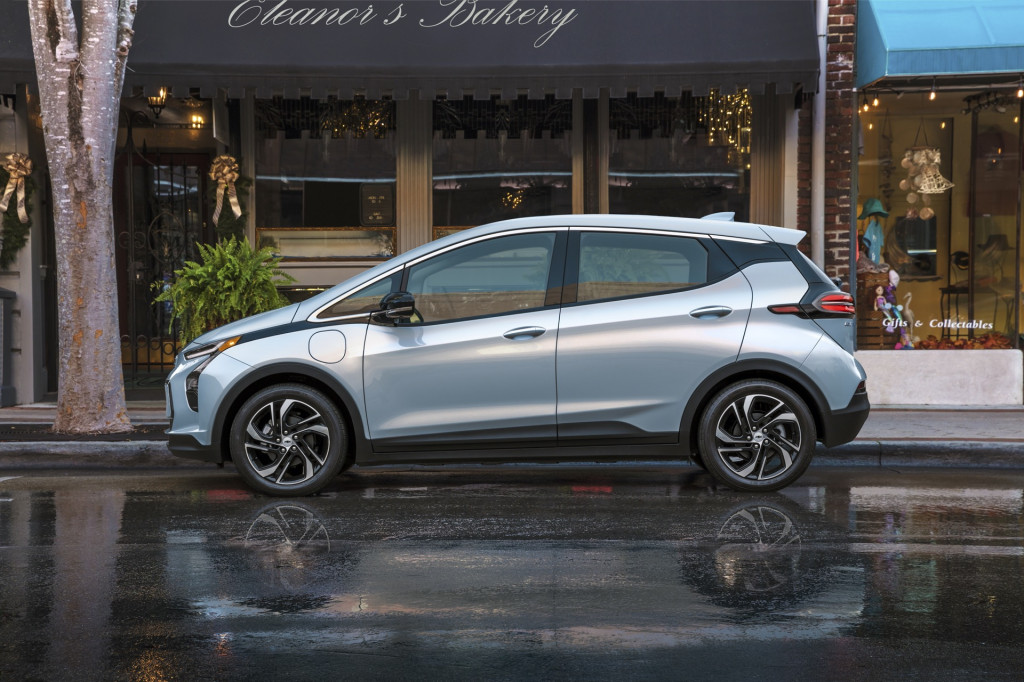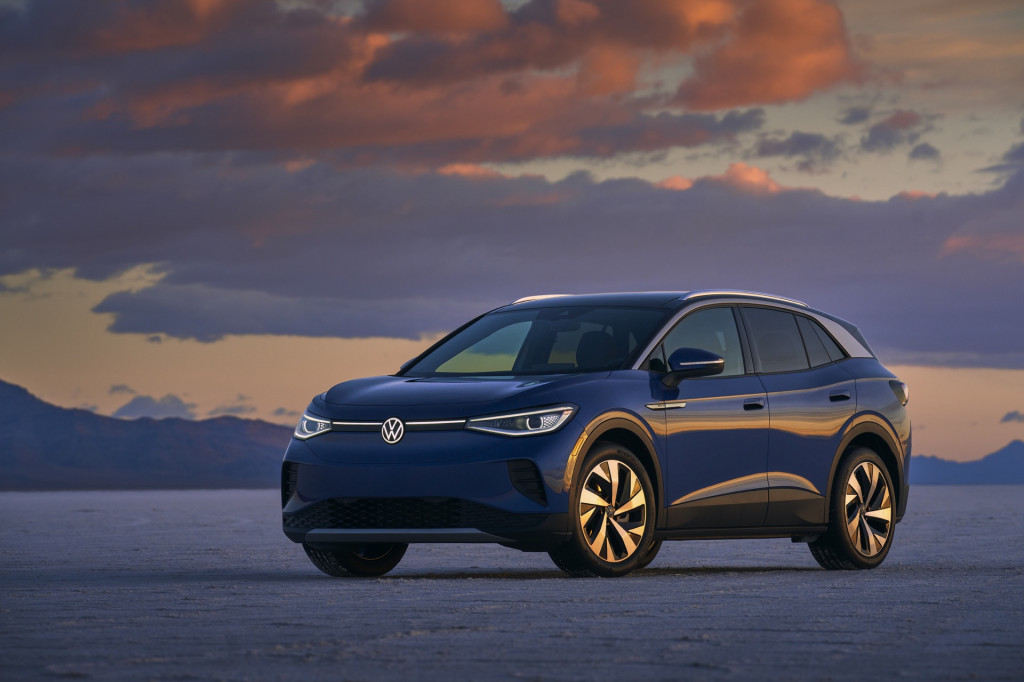All electric cars experience some range loss in cold weather, but the amount varies widely by model, according to a new report from battery analysis firm Recurrent.
The company, which produces battery health reports for used EVs, published a similar report last year. This time, though, it has more data, with model comparisons based on information from about 7,000 vehicles.

2022 Chevrolet Bolt EV
This year’s findings reinforce what Recurrent reported last year: that cold weather affects EV range differently for each model. It can be a big difference, too.
In freezing versus 70-degree temperatures, the Chevrolet Bolt EV had the biggest average range loss, at 32%, while the Audi E-Tron seems to endure cold weather the best of the models surveyed, losing just 8% of its warm-weather range when temperatures drop.

2021 Volkswagen ID.4
There was no apparent pattern to the range losses. The big drops experienced by the Nissan Leaf (21%) and Volkswagen e-Golf (23%) are likely due to their air-cooled battery packs, which have a harder time keeping up with major temperature changes. The Bolt EV has a liquid-cooled pack, though, as do the VW ID.4 and and Ford Mustang Mach-E, which both experienced average range decreases of 30%.
For years, EVs in the U.S. didn’t have to prove much about cold-weather performance as the vast majority of them ended up in California. But now, with interest strong across the country, the priorities are different. It seems automakers will need to take additional measures, such as adding heat pumps, to better equip their cars for the dramatically different weather conditions nationwide.
Keep in mind that Recurrent didn’t opt to normalize these results for geographic location or driving style. A Leaf is often used in a different, more efficient way than a Model 3, it points out. So how extreme of a winter owners of each vehicle actually experience—and how far they push the range of their EV—may also vary widely.







